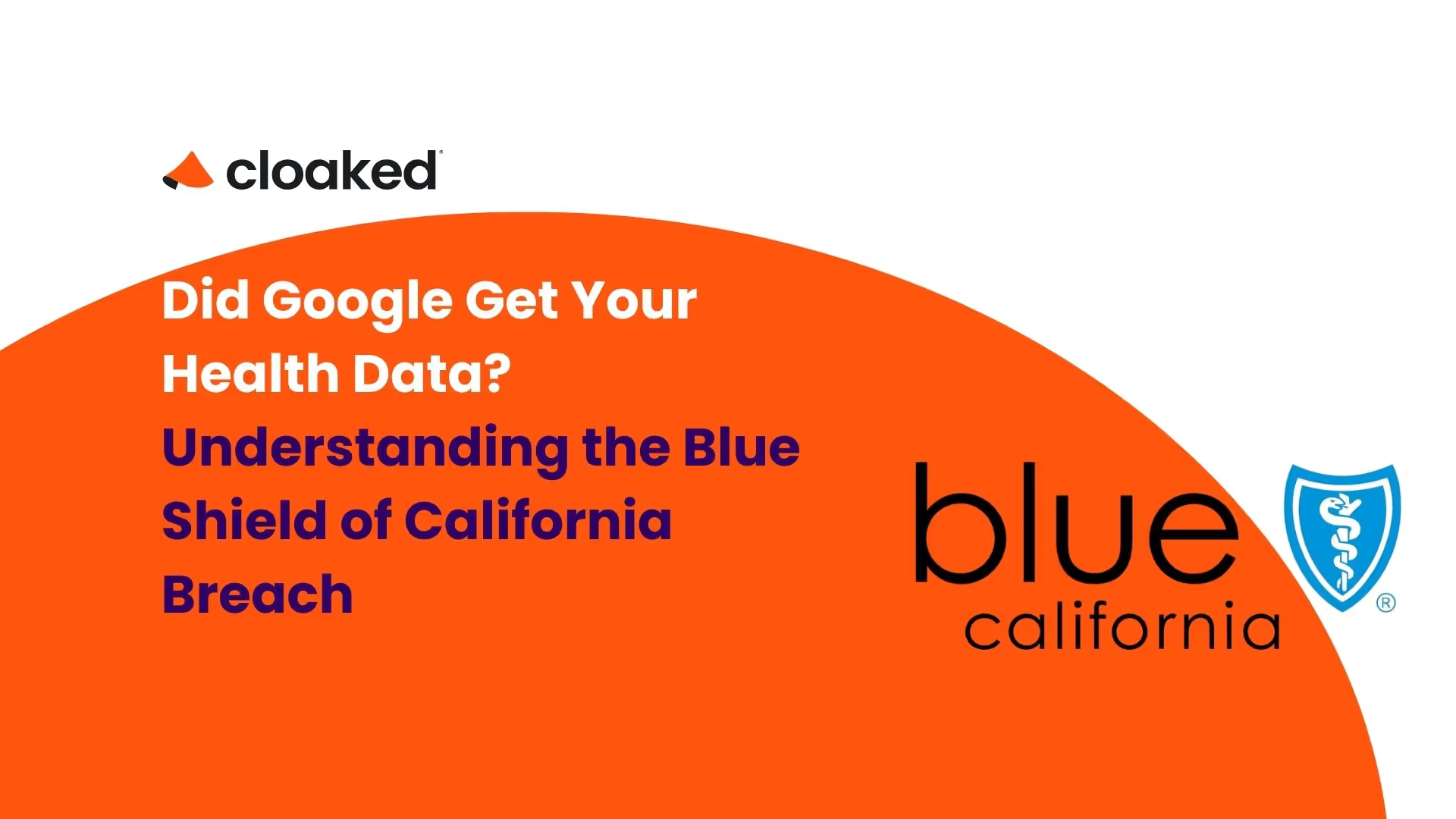In our digital age, data breaches are alarmingly common, but when health data is involved, the consequences can be particularly severe. Recently, Blue Shield of California revealed a breach affecting 4.7 million members due to a misconfigured Google Analytics tool. This breach inadvertently shared protected health information with Google Ads, raising pressing concerns about privacy and data security. If you're a Blue Shield member, understanding what this means for you is crucial.
What Datapoints Were Leaked?
The recent data breach at Blue Shield of California has raised eyebrows and questions among its 4.7 million affected members. With sensitive information exposed, understanding the specifics is vital to gauge the potential impact on your personal privacy.
Data Exposed: The breach spanned from April 2021 to January 2024, during which a misconfiguration in Google Analytics led to protected health information being inadvertently shared with Google Ads. This exposure involved a wide range of data points:
- Insurance Details: Names of insurance plans, types, and group numbers were among the data leaked.
- Personal Identifiers: Information such as city, zip code, gender, and family size was exposed.
- Medical Information: This included medical claim service dates, service providers, patient names, and patient financial responsibilities.
- Search Activities: Criteria and results from "Find a Doctor" searches, such as location and provider details, were also compromised.
It's important to note that while this breach exposed a significant amount of personal information, critical data like Social Security numbers and financial account details were not affected. Nonetheless, the potential misuse of the available data should not be underestimated. Awareness of what was exposed is the first step in protecting yourself from further risk.
Should You Be Worried?
When health data is compromised, the implications can be significant and far-reaching. The recent breach at Blue Shield of California, which affected 4.7 million members, underscores the potential risks and concerns.
Repercussions of Data Compromise
Health data isn't just about medical history; it's a mosaic of personal information that, when exposed, can lead to:
- Identity Theft: Even though Social Security numbers and banking details weren't exposed, other data, like insurance details and personal identifiers, can still be exploited by malicious actors.
- Privacy Violations: Sensitive data such as medical claims and provider details are personal. Unauthorized access can lead to privacy invasions that are not only unsettling but also damaging.
- Targeted Advertising: Misconfigured Google Analytics settings allowed member data to be shared with Google Ads. This can lead to targeted ads based on sensitive health information, raising ethical concerns about privacy.
Privacy Violations and HIPAA Compliance
HIPAA, or the Health Insurance Portability and Accountability Act, sets the standard for protecting sensitive patient information. Breaches like the one at Blue Shield highlight potential gaps in compliance:
- Potential Penalties: Non-compliance with HIPAA can result in hefty fines and legal repercussions for the organization.
- Trust Erosion: When an organization fails to safeguard health data, it risks losing the trust of its members, which can be even more damaging in the long term.
Google's Role and Unintended Consequences
The use of data by platforms like Google Ads, even unintentionally, raises questions about:
- Data Usage Policies: How companies like Google handle data, intentionally or not, can have significant privacy implications.
- User Awareness: Many users are unaware of how their data might be used or shared, especially in contexts they didn't anticipate.
Protecting Your Data
In light of such breaches, companies like Cloaked offer solutions to safeguard your data, ensuring [your personal information](https://www.cloaked.com/features/sharing-identities?utm_source=cloaked-blog&utm_medium=blog&utm_campaign=blog) remains just that—personal. While Cloaked's innovative features provide enhanced privacy and control, it's crucial for individuals to remain vigilant about their own data privacy practices.
Understanding the risks and taking proactive steps can help mitigate the potential fallout of such breaches, keeping your health data secure and your mind at ease.
What Should Be Your Next Steps?
Dealing with a data breach can be unsettling, especially when it involves sensitive health information. Here’s a straightforward guide to help you protect your data and mitigate potential risks.
1. Monitor Your Accounts
Regularly review your account statements and credit reports for any unusual activity. Look for transactions you don't recognize or new accounts you didn't open. This vigilance is essential in spotting unauthorized activities early.
2. Change Your Passwords
Immediately update your passwords for all online accounts, especially those associated with your health plan. Use complex passwords that include a mix of uppercase and lowercase letters, numbers, and special characters. Consider using a password manager to generate and store these securely.
3. Stay Informed
Keep abreast of any updates from your health provider regarding the breach. They may offer additional insights or services to help protect your data. Sign up for alerts from your bank and credit card companies to stay informed about any suspicious activities.
4. Report Suspicious Activity
If you detect any unauthorized transactions or accounts, report them immediately to your financial institutions and local law enforcement. Quick reporting can help prevent further fraudulent activities.
5. Consult with Privacy Experts
Consider reaching out to privacy professionals for guidance on further protective measures. They can offer tailored advice based on your specific situation and help you understand the legal implications of the breach.
6. Utilize Identity Protection Tools
Explore tools and services that offer identity theft protection. While not always foolproof, these can add an additional layer of security by monitoring your personal information and alerting you to potential misuse.
Cloaked's Contribution: If you're looking for a proactive measure, consider using a service like Cloaked, which provides identity protection features. It can help manage and shield your personal information from unauthorized access, offering peace of mind in today's digital age.
Taking these steps can significantly reduce the risk of further exposure and help you regain control over your personal data. While the process may seem overwhelming, these actions are crucial in safeguarding your information.










